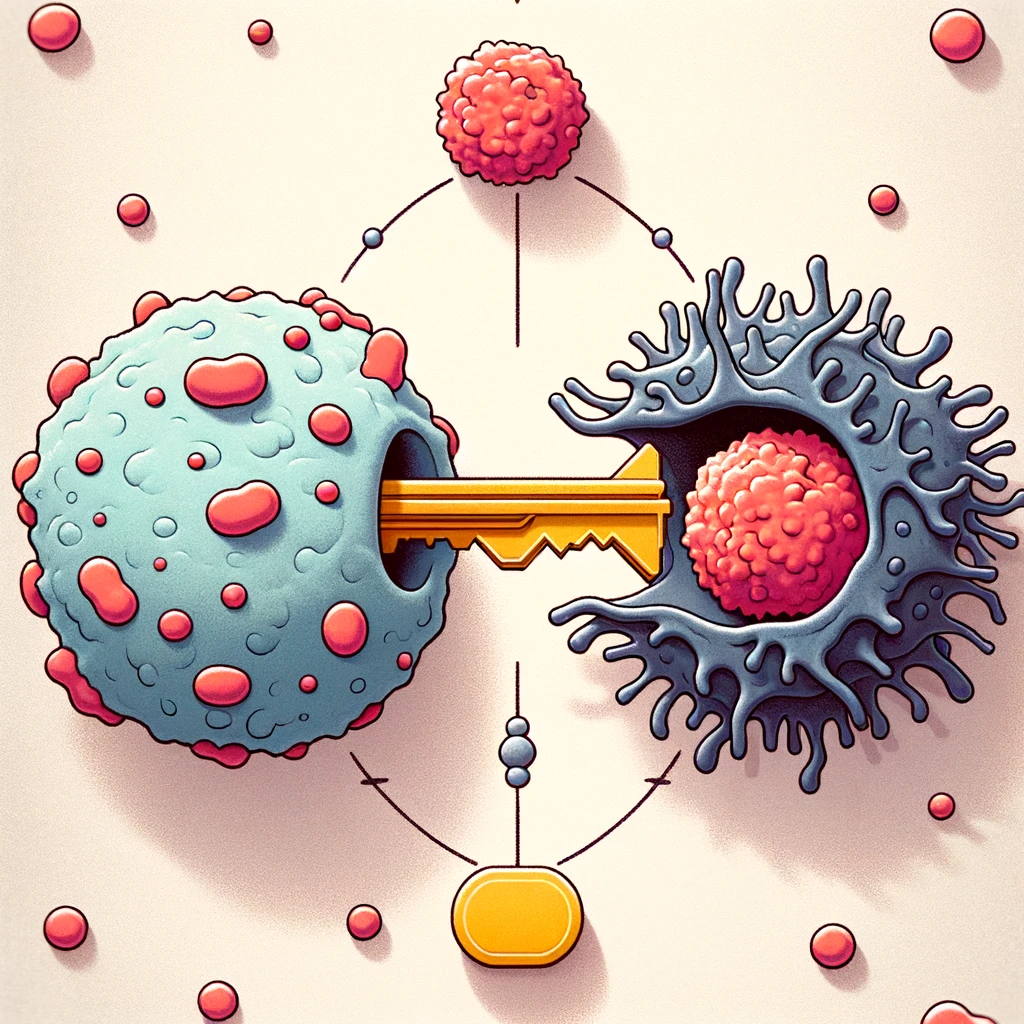Dendritic Cell
Therapy
Dendritic Cell Therapy
Dendritic Cells and Their Role in the Immune System
Dendritic cells serve as vigilant sentinels of the immune system, constantly patrolling the body to detect any signs of infection or disease. Their primary function involves engulfing foreign particles, including pathogens and cancer cell fragments, to process these antigens. Following antigen capture, they migrate to lymph nodes where they present these antigens to T cells, a crucial step for priming T cells to recognize and subsequently attack cells carrying these antigens.
This process not only activates the immune response but also forms a critical bridge between the body’s innate (nonspecific) and adaptive (targeted) immunity, thereby playing an essential role in orchestrating a comprehensive immune defence.
Form
Overview of Dendritic Cell Therapy
- Type of Therapy: Dendritic cell therapy is a form of active cellular immunotherapy that leverages the immune system to fight cancer.
- Personalized Treatment: It involves customizing therapy using the patient’s own dendritic cells, making it a tailored approach to cancer treatment.
- Preparation of Dendritic Cells: Dendritic cells are collected from the patient, cultured and ‘educated’ in the lab by exposing them to specific cancer antigens.
- Reintroduction to Patient: The antigen-loaded dendritic cells are reintroduced into the patient’s body, where they migrate to lymph nodes.
- Immune Response Activation: Once in the lymph nodes, these cells present the cancer antigens to T cells, initiating a targeted immune response against cancer cells.
- Advantages Over Traditional Therapies: Dendritic cell therapy aims to provide a more targeted and less toxic treatment option compared to conventional therapies like chemotherapy and radiation.
- Ongoing Research and Development: This therapy is at the forefront of immunotherapy research, with ongoing studies aimed at enhancing its effectiveness and applicability to various types of cancer.
MECHANISM OF DENDRITIC THERAPY
Leukapheresis is used to collect precursor cells from the patient’s blood, which can become dendritic cells.
These cells are cultured with growth factors like GM-CSF and IL-4 to promote their maturation into dendritic cells.
Mature dendritic cells are exposed to cancer-specific antigens, either from the patient’s tumor or known tumor markers.
Additional cytokines, such as TNF-alpha, are used to further mature the dendritic cells, enhancing their ability to activate T cells.
The prepared dendritic cells are tested for their potency and ability to present antigens effectively.
The antigen-loaded dendritic cells are reintroduced into the patient, typically via an injection into the bloodstream or a lymph node.
In the lymph nodes, the dendritic cells present the cancer antigens to T cells, activating them.
The activated T cells multiply, creating a large pool of cells that target the cancer antigens.
These T cells seek out and destroy cancer cells throughout the body that display the targeted antigens.
The patient’s response is monitored, with potential booster doses of dendritic cells to enhance the immune response.

WHY CHOSE US?
Choosing our organization for dendritic cell therapy offers a unique and scientifically advanced approach to cancer treatment. Unlike conventional methods that might target a broad range of proteins within the tumour environment, our specialized technique focuses on training dendritic cells to recognize and attack the specific protein responsible for the cancer. This precision in targeting not only enhances the effectiveness of the therapy but also minimizes potential damage to healthy cells surrounding the tumour.
Our approach is grounded in cutting-edge research and the latest scientific insights into cancer biology. Furthermore, our dedicated team of researchers and clinicians works to stay at the forefront of immunotherapy advances. Through continuous innovation and a deep commitment to patient care, we strive to provide therapies that not only extend lives but also improve the quality of life for our patients.
Benefits of Dendritic Cell Therapy
Targeted Approach
Unlike traditional treatments like chemotherapy, dendritic cell therapy specifically targets cancer cells, which can reduce damage to healthy cells and tissues.
Personalized Medicine
Therapy can be tailored to the individual's cancer type and profile, potentially increasing its effectiveness.
Immune Memory
It can provide long-lasting immunity against cancer by inducing a memory response in the immune system, potentially preventing recurrence.
Improved Quality of Life
May have fewer and less severe side effects compared to traditional cancer treatments, leading to a better quality of life during and after treatment.
Side Effects/Cons of Dendritic Cell Therapy
- Immune-Related Side Effects: As with other immunotherapies, it can cause immune-related adverse effects, such as inflammation, which might affect healthy tissues and organs.
- Limited Availability: Currently, it may not be widely available or may only be offered at specialized treatment centers, limiting access for some patients.
- Cost: Can be expensive, and insurance coverage might vary, potentially making it less accessible for some patients.
- Variable Efficacy: The effectiveness can vary among patients, and not everyone may respond to the therapy, necessitating alternative or additional treatments.
- Infection Risk: The process of collecting, modifying, and reintroducing dendritic cells carries a risk of infection, although this is generally low.
ONGOING RESEARCH
Enhanced Antigen Presentation
Techniques like electroporation are improving dendritic cells' ability to present antigens, boosting the immune response.
Combination Therapies
DC therapy is being combined with other treatments like checkpoint inhibitors and chemotherapy to break through the tumour’s immune defences.
Personalized Vaccines
Tailoring dendritic cell vaccines to individual tumour profiles is enhancing treatment specificity and effectiveness.
